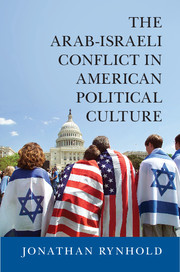Book contents
- Frontmatter
- Dedication
- Contents
- Acknowledgments
- Introduction
- 1 Like U.S.: American Identification with Israel
- Part I Party and Ideology
- Part II Protestants
- 4 Evangelicals and Christian Zionism: Standing with Israel
- 5 The Mainline Protestant Church and Anti-Zionism: Divesting from Israel?
- Part III Jews
- Notes
- Bibliography
- Index
5 - The Mainline Protestant Church and Anti-Zionism: Divesting from Israel?
Published online by Cambridge University Press: 05 February 2015
- Frontmatter
- Dedication
- Contents
- Acknowledgments
- Introduction
- 1 Like U.S.: American Identification with Israel
- Part I Party and Ideology
- Part II Protestants
- 4 Evangelicals and Christian Zionism: Standing with Israel
- 5 The Mainline Protestant Church and Anti-Zionism: Divesting from Israel?
- Part III Jews
- Notes
- Bibliography
- Index
Summary
The occupation is … the root of evil acts committed against innocent people on both sides.
—Presbyterian General Assembly Divestment resolution, 2004Introduction
In 2004, the General Assembly of the Presbyterian Church in America PC(USA) voted to initiate a process of “phased selective divestment” from companies operating in Israel. Israelis and American Jews were shocked. Most Israelis had no idea that significant organized hostility to Israel existed in America. American Jews were taken aback, as many were used to looking on the mainline Protestant churches (here on in – the mainline) as allies in the struggle for civil rights and the preservation of the separation of church and state. Yet the Presbyterian divestment resolution was not an aberration but part of a broader trend in mainline policy.
But what exactly is the nature and extent of mainline hostility to Israel? Does it reflect widespread feelings within the mainline, or is it driven by a small but politically active group of Far Left extremists? Is that hostility primarily a function of changes in the Middle East since 1967, especially changes in Israeli policy? Does it reflect, in fact, an evenhanded approach, in which the moral faults of the policies pursued by both sides in the conflict are criticized? Alternately, is this hostility of a more longstanding and fundamental nature? Does it, in fact, extend beyond criticism of specific Israeli policies into outright hostility to the Jewish state by singling out Israel among all the nations of the world for particular opprobrium?
- Type
- Chapter
- Information
- The Arab-Israeli Conflict in American Political Culture , pp. 116 - 136Publisher: Cambridge University PressPrint publication year: 2015

